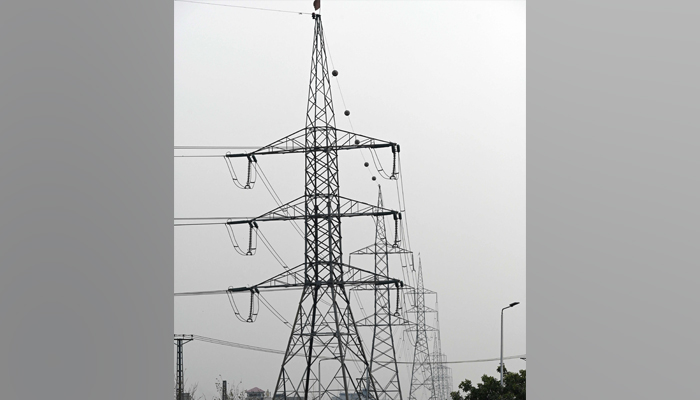Time for privatization?
The National Electric Power Regulatory Authority’s (Nepra) recent report on the billing practices of Pakistan’s distribution companies (DISCOs) for July and August 2023 offers a comprehensive and critical examination of the sector.
This in-depth analysis, focusing on the operational challenges and inefficiencies within various DISCOs underscores an urgent need for systemic reforms in Pakistan’s power sector.
The report’s findings are a cause for significant concern. For instance, the Multan Electric Power Company (Mepco) charged over 5.7 million consumers for billing cycles exceeding the standard 30 days in July 2023. This practice led to inflated bills and unfairly pushed consumers into higher tariff slabs. Similarly, in August 2023, the Gujranwala Electric Power Company (Gepco) impacted around 1.2 million consumers with extended billing cycles.
Further, the report highlights substantial issues with invalid meter readings and snaps. Major contributors to this problem included Mepco, Lahore Electric Supply Company (Lesco), Quetta Electric Supply Company (Qesco), and Sukkur Electric Power Company (Sepco). The prevalence of defective meters, especially in Mepco, further complicates the issue, leading to overbilling and financial strain on consumers.
A particularly alarming aspect revealed in the report is the age-wise analysis of defective meters across DISCOs, impacting billing accuracy. Mepco, for example, had a staggering 272,370 defective meters by August 2023. The delay in replacing these meters resulted in consumers being inaccurately charged on an average basis for extended periods.
Moreover, the report uncovers discrepancies in sample bills checked across various DISCOs. A high percentage of bills were found to have discrepancies, such as differences in meter readings, incorrect slab charges, and issues with meter snapshots. This reflects not only poor operational practices but also a lack of transparency in the billing process.
In contrast to these challenges, K-Electric (KE), operating under a privatized model, demonstrates a different scenario. While the report does not primarily focus on KE, its relative efficiency and fewer issues compared to the public DISCOs subtly indicate the potential benefits of privatization in the power sector. KE’s example suggests that privatization can lead to improved service delivery, enhanced accountability, and better resource management.
The Nepra report’s findings serve as a stark reminder of the need for reform in Pakistan’s power sector and the need for privatization in DISCOs. The inefficiencies and irregularities in the billing practices of DISCOs like Mepco and Gepco directly impact the financial wellbeing of millions of consumers.
These findings highlight the urgent need for reforms and improvement in the management and operational practices of these companies.
The writer is an energy economist and works as a research officer at the Institute of Policy Studies (IPS).
-
 Patriots' WAGs Slam Cardi B Amid Plans For Super Bowl Party: She Is 'attention-seeker'
Patriots' WAGs Slam Cardi B Amid Plans For Super Bowl Party: She Is 'attention-seeker' -
 Martha Stewart On Surviving Rigorous Times Amid Upcoming Memoir Release
Martha Stewart On Surviving Rigorous Times Amid Upcoming Memoir Release -
 Prince Harry Seen As Crucial To Monarchy’s Future Amid Andrew, Fergie Scandal
Prince Harry Seen As Crucial To Monarchy’s Future Amid Andrew, Fergie Scandal -
 Chris Robinson Spills The Beans On His, Kate Hudson's Son's Career Ambitions
Chris Robinson Spills The Beans On His, Kate Hudson's Son's Career Ambitions -
 18-month Old On Life-saving Medication Returned To ICE Detention
18-month Old On Life-saving Medication Returned To ICE Detention -
 Major Hollywood Stars Descend On 2026 Super Bowl's Exclusive Party
Major Hollywood Stars Descend On 2026 Super Bowl's Exclusive Party -
 Cardi B Says THIS About Bad Bunny's Grammy Statement
Cardi B Says THIS About Bad Bunny's Grammy Statement -
 Sarah Ferguson's Silence A 'weakness Or Strategy'
Sarah Ferguson's Silence A 'weakness Or Strategy' -
 Garrett Morris Raves About His '2 Broke Girls' Co-star Jennifer Coolidge
Garrett Morris Raves About His '2 Broke Girls' Co-star Jennifer Coolidge -
 Winter Olympics 2026: When & Where To Watch The Iconic Ice Dance ?
Winter Olympics 2026: When & Where To Watch The Iconic Ice Dance ? -
 Melissa Joan Hart Reflects On Social Challenges As A Child Actor
Melissa Joan Hart Reflects On Social Challenges As A Child Actor -
 'Gossip Girl' Star Reveals Why She'll Never Return To Acting
'Gossip Girl' Star Reveals Why She'll Never Return To Acting -
 Chicago Child, 8, Dead After 'months Of Abuse, Starvation', Two Arrested
Chicago Child, 8, Dead After 'months Of Abuse, Starvation', Two Arrested -
 Travis Kelce's True Feelings About Taylor Swift's Pal Ryan Reynolds Revealed
Travis Kelce's True Feelings About Taylor Swift's Pal Ryan Reynolds Revealed -
 Michael Keaton Recalls Working With Catherine O'Hara In 'Beetlejuice'
Michael Keaton Recalls Working With Catherine O'Hara In 'Beetlejuice' -
 King Charles, Princess Anne, Prince Edward Still Shield Andrew From Police
King Charles, Princess Anne, Prince Edward Still Shield Andrew From Police




